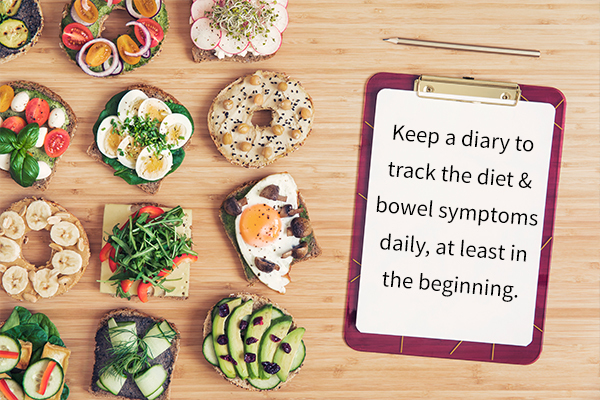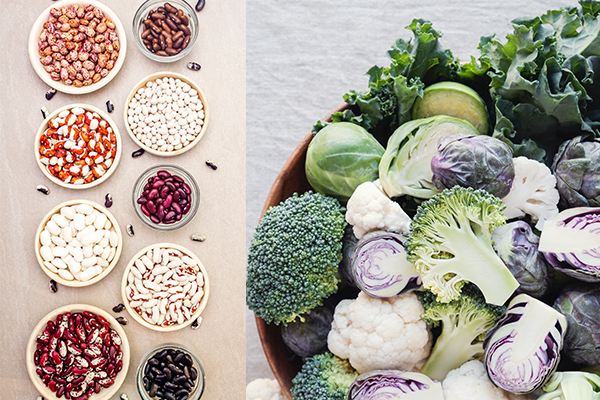In this article:
Irritable bowel syndrome (IBM) refers to a group of symptoms of the gastrointestinal tract.

It is a common condition that affects the large intestine and its cause is unknown. It is more prevalent among women and those with a family history of the disease.
This article talks about the different signs and causes of IBS and its treatment.
Irritable Bowel Syndrome
IBS is a common disorder with no known cause. It causes a wide range of symptoms, including diarrhea, constipation, abdominal pain, and bloating.
It is often seen in patients who are under a lot of stress or may have a history of anxiety or depression. (1) The symptoms of IBS usually get worse after a meal and may get better after a bowel movement. They tend to last a few minutes or until a few hours.
As the body ages and the situation changes, IBS can worsen or improve with age. However, if the symptoms are not controlled, they will usually continue.
Treatment for IBS

If all aspects of IBS are evaluated and managed, symptoms of IBS can be completely controlled and even become nonexistent. To treat IBS, start by keeping a daily diary of your diet, symptoms, habits, and any other factors that may be affecting the bowels, at least in the beginning.
This can help your doctor identify factors such as lactose intolerance, other food intolerances and stress that tend to worsen the symptoms of some IBS cases. You can also use medications to alleviate an IBS attack. Do consult your doctor about it.
Home Remedies for IBS Management
When it comes to home remedies, peppermint oil and probiotics based on bifidobacteria taken before the meals have helped many patients in reducing their pain.
Probiotics help stimulate wave-like muscular contractions in the digestive tract, which are responsible for pushing the feces forward toward the exit point of the colon.
Some of the best dietary sources of probiotics include fermented foods such as pickles and sauerkraut as well as regular or Greek yogurt that is without any added sugars and low in fat. (2)
Dietary Recommendations for IBS
Since IBS is a gastrointestinal disease, it is largely influenced by the food you consume. Therefore, it is vital to modify your diet according to what suits you best.
Foods that trigger an IBS attack

There are many foods that are only partially digested in the small intestines. When they are further digested in the colon or large intestine, they may give rise to issues such as gas and cramps. If the gas or bloating is causing trouble, then it is best to eliminate these foods temporarily.
The most common foods that cause gas are legumes (for example, beans) and cruciferous vegetables (for example, cabbage, Brussels sprouts, cauliflower, and broccoli). Moreover, some people have trouble digesting carrots, celery, onions, sprouts, wheat, raisins, apricots, prunes, and bananas. (3)
Foods to consume during an IBS attack
The good news is that many foods and drinks are known to be well tolerated in IBS. Some of the examples are water, ginger ale, Gatorade, Sprite, soy milk, rice milk, plain pasta, plain white rice, and baked or boiled potatoes (not French fries).
Some other examples include white bread, plain fish, plain chicken, plain turkey, plain ham, soft boiled or poached eggs, plain cornflakes, Rice Krispies, lettuce, hard-boiled eggs, oil, vinegar dressing, cooked carrots (not raw), peanut butter, jellies, and jams. (3)
Most-Asked Questions About IBS
Is IBS an autoimmune condition?
No, IBS is totally unrelated to autoimmune diseases.
Can IBS affect your menstrual cycle?
It depends on the severity and triggers for IBS. Both IBS and menstrual cycle irregularities share similar triggers, such as stress and anxiety. (4)
Does IBS increase the risk of colon cancer?
No. IBS doesn’t cause any change to the structure of the bowels. It doesn’t turn into cancer.
Final Word
IBS is a chronic problem with no cure. However, it can be easily managed with lifestyle and dietary changes. Moreover, you can consult your doctor for medications that help relieve the pain during a flare-up.
It is vital to understand that your digestive system is unique and what suits others may trigger an attack in your body. Therefore, you should try different options to find what is suitable for you.
- Was this article helpful?
- YES, THANKS!NOT REALLY


